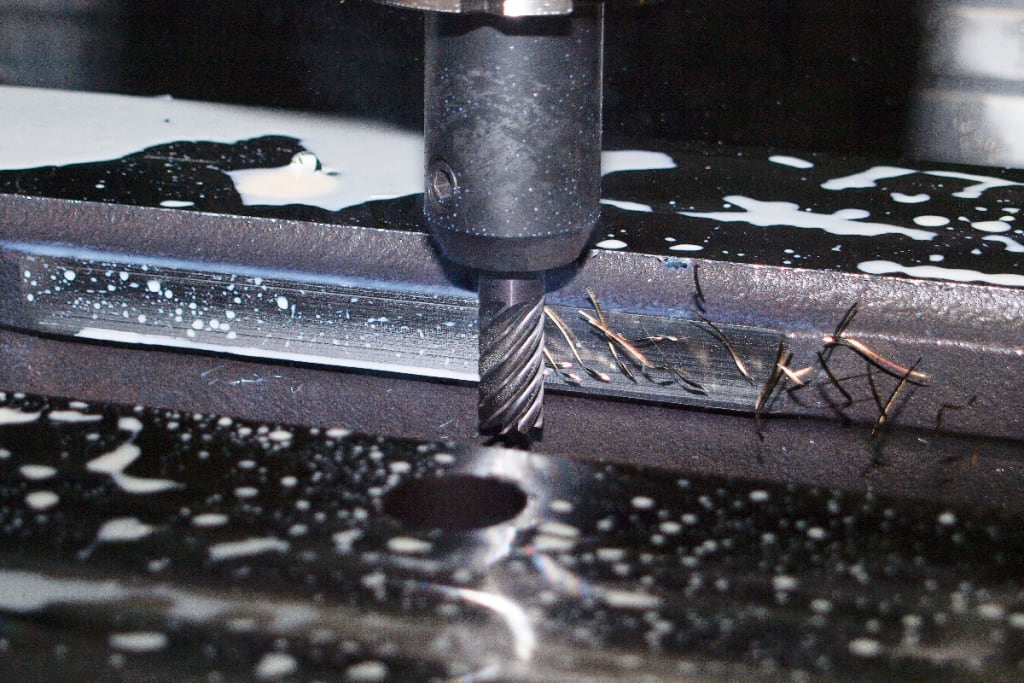
Custom CNC milling has revolutionized manufacturing, allowing for the precise and efficient production of complex parts and components. However, the material selection process is as crucial as the CNC milling process.
Choosing the suitable material for a project can impact the final product's quality, durability, and cost-effectiveness. In this blog post, we will discuss the importance of material selection in custom CNC milling and examine the factors to consider when choosing materials.
We'll also look at different materials commonly used in CNC milling and the specific material selection considerations for various applications. By the end of this post, you'll better understand why the material selection is crucial in CNC milling and how to make informed decisions when selecting materials for your project.
Factors to Consider When Selecting Materials for CNC Milling
When selecting materials for CNC milling, several factors must be considered to ensure that the material is suitable for the specific application and that the manufacturing process is efficient and cost-effective. These factors include:
Type of material: Different materials have varying properties that make them better suited for specific applications. For example, metals are often used in applications that require strength and durability, while plastics are commonly used in applications that require lightweight and low cost. Choosing the right type of material is critical in ensuring that the final product meets the project's requirements.
Material properties: The properties of the material used in CNC milling affect the final product's performance and durability. Properties such as strength, stiffness, thermal conductivity, and wear resistance must be considered when selecting materials for CNC milling. The material properties should match the intended use of the final product.
Cost: The cost of the material is another critical factor to consider when selecting materials for CNC milling. The material cost must be balanced with the project budget to ensure the final product is cost-effective.
Availability: The availability of the material should be considered when selecting materials for CNC milling. Readily available materials are often more cost-effective than those that are difficult to source.
Sustainability: Sustainable materials should be considered in CNC milling to reduce the environmental impact of the manufacturing process. Materials that are recyclable or have a lower environmental impact should be given priority when selecting materials for CNC milling.
Different Materials Used in CNC Milling
Various materials can be used in CNC milling, and the type of material chosen for a specific application depends on the final product's intended use and requirements. Here are some of the different materials commonly used in CNC milling:
Metals: Metals are commonly used in CNC milling due to their strength, durability, and excellent thermal conductivity. Typical metals used in CNC milling include aluminum, brass, and steel.
Plastics: Plastics are often used in CNC milling due to their low cost, lightweight, and ease of machining. Common plastics used in CNC milling include ABS, acrylic, and nylon.
Composites: Composites combine different materials, such as carbon fiber and fiberglass, used in CNC milling to create strong and lightweight products. Composites are commonly used in the aerospace and automotive industries.
Ceramics: Ceramics are often used in CNC milling due to their high thermal resistance and durability. Ceramics are commonly used in applications that require high wear resistance, such as cutting tools and engine components.
Wood: Wood is a natural material commonly used in CNC milling for applications such as furniture and decorative items. Wood is easy to machine and has a unique natural aesthetic, making it a popular choice in many industries.
The choice of material for CNC milling depends on the product's intended use and requirements. Metals, plastics, composites, ceramics, and wood are just a few of the materials that can be used in CNC milling, and each has its unique advantages and disadvantages.
Importance of Material Properties in CNC Milling
CNC milling is a complex manufacturing process that requires precision and accuracy. The properties of the materials used in CNC milling can significantly impact the process and the final product's quality.
The material properties affect the CNC milling process in several ways, including:
Tool wear: The hardness and strength of the milled material can impact the wear and tear on the cutting tools used in the process.
Surface finish: The material's properties can affect the surface finish of the final product, including its roughness and smoothness.
Tolerance: The material's ductility and strength can affect the degree of deformation that occurs during the milling process, potentially impacting the final product's accuracy and tolerance.
Heat generation: The thermal conductivity of the material can affect the amount of heat generated during the milling process, which can impact the surface quality, tool wear, and even the structural integrity of the finished product.
Examples of material properties that impact CNC milling:
Strength: The strength of the material can impact the cutting speed needed to achieve a particular surface finish and the wear and tear on the cutting tools.
Ductility: The material's ductility can impact the degree of deformation during the milling process, potentially impacting the final product's accuracy and tolerance.
Thermal conductivity: The thermal conductivity of the material can impact the heat generated during the milling process, which can affect the surface quality, tool wear, and even the structural integrity of the finished product.
Understanding the material properties' impact on the CNC milling process is essential to optimize the milling process, achieve the desired quality, and reduce the risk of errors or defects.
By selecting the appropriate materials and cutting parameters, manufacturers can increase efficiency, reduce costs, and improve the final product's quality.
Material Selection for Specific CNC Milling Applications
CNC milling is widely used in various industries, including aerospace, medical device manufacturing, automotive, and more. The materials used in these industries vary significantly and require careful selection to meet the specific requirements of each application.
Example applications:
Aerospace: CNC milling is used extensively in aerospace manufacturing to produce complex components with high precision and tight tolerances. Materials commonly used in this industry include aluminum, titanium, and stainless steel.
Medical device manufacturing: CNC milling is commonly used in the medical device industry to produce highly accurate and precise components. Materials commonly used in this industry include stainless steel, titanium, and plastics.
Automotive: CNC milling is used in the automotive industry to produce various components, including engine parts, gears, and suspension components. Materials commonly used in this industry include aluminum, steel, and composites.
Material selection considerations for each application:
Aerospace: Material selection for aerospace applications considers strength, weight, and corrosion resistance factors. The materials used in aerospace must be lightweight, strong, and able to withstand harsh environments.
Medical device manufacturing: Material selection for medical devices considers factors such as biocompatibility, sterilization, and wear resistance. The materials used in medical devices must be safe for use in the human body, able to withstand sterilization procedures, and durable enough to withstand wear and tear.
Automotive: Material selection for automotive applications considers strength, weight, and cost. The materials used in automotive components must be strong enough to withstand the stresses of use, lightweight to improve fuel efficiency, and cost-effective to keep production costs low.
Material selection is a critical consideration in CNC milling applications to ensure that the final product meets the specific requirements of each industry.
By carefully selecting the appropriate materials for each application, manufacturers can optimize the milling process, improve efficiency, and produce high-quality products.
Conclusion
Material selection is a critical aspect of custom CNC milling. The selection of materials impacts the final product's functionality, durability, and overall quality.
The suitable material can optimize the milling process, improve efficiency, and produce a successful and high-quality end product. The selection process must consider multiple factors, including material properties, application requirements, and cost.
By carefully considering these factors, manufacturers can choose the appropriate materials to produce an optimal custom CNC milling process and a high-quality final product that meets their client's needs.
About the Creator
NGrimberg
My Name is Norm and I have a great deal of knowledge in CNC Machining.






Comments
There are no comments for this story
Be the first to respond and start the conversation.